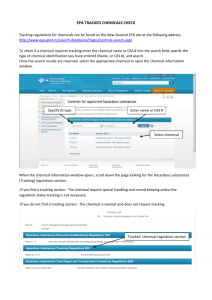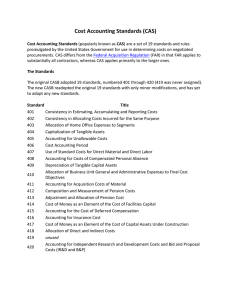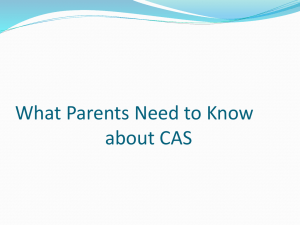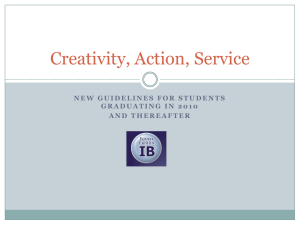Presentation on CaS
advertisement
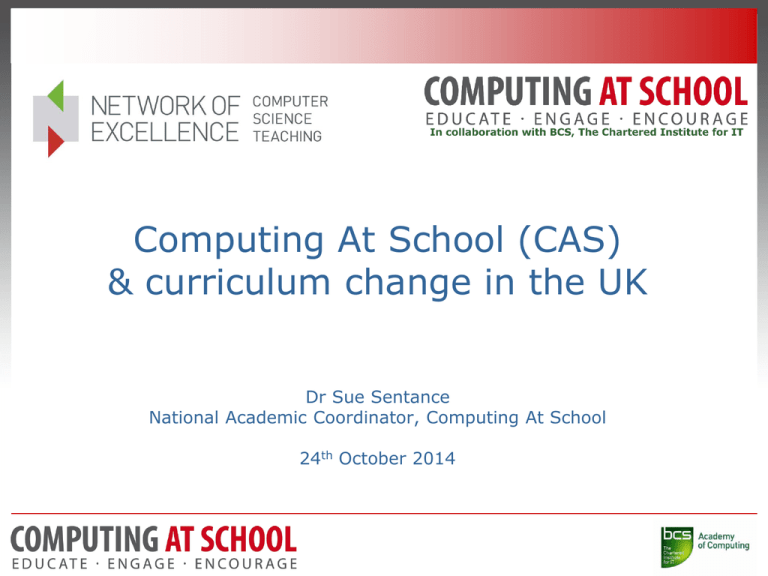
Computing At School (CAS) & curriculum change in the UK Dr Sue Sentance National Academic Coordinator, Computing At School 24th October 2014 … started in 2008 with 5 members … in 2014 almost at 10,000 members … There is no THEM, only US! Simply a group of individuals, concerned about the state of computing education in our schools Including: Teachers Industry (eg. Google, Microsoft) University academics (incl. CPHC, UKCRC) Members of exam board (eg. AQA) Members of professional societies (eg. BCS) Parents Local educational advisers Teacher trainers Varied backgrounds, with common concerns CAS believes that … Computer science is a proper, rigorous school subject discipline, on a par with mathematics or chemistry, that every child should learn from primary school onwards. NB. It is not about computers, nor is it about programming The role of CAS? Influencing national policy Computing: a curriculum for schools Directly support teachers “on the ground” The Royal Society recommendations – from ICT to Computing Curriculum change (in England) • Computer Science at heart of new curriculum • Schoolchildren from age 5 to be taught computer science • Still includes digital literacy as major component • September 2013 Final Programme of Study for Computing published – effective from 1st September 2014 7 New national curriculum for Computing CAS Membership CAS Regional Hubs Peer-to-peer support Master teachers Run low-cost training events for teachers Speak at events Visit teachers in schools Active members of CAS Community Summary Computing At School started as a vehicle for advocacy to promote CS in school. CAS is a true “community of practice” Curriculum change has happened (in England) and growth is very rapid! CAS : “There is no THEM, only US” Our professional development model (NoE) is holistic – a local, peer-to-peer, face-to-face model… empowering enthusiastic teachers Questions for discussion CAS teachers will be asked to volunteer to test the materials. Questions they will ask… What level of commitment is needed from the participating teachers? What level of skill/background will they (teachers) need to have to participate in the project? At what age group (students) are the materials to be aimed? What are the benefits for the participating teachers?


